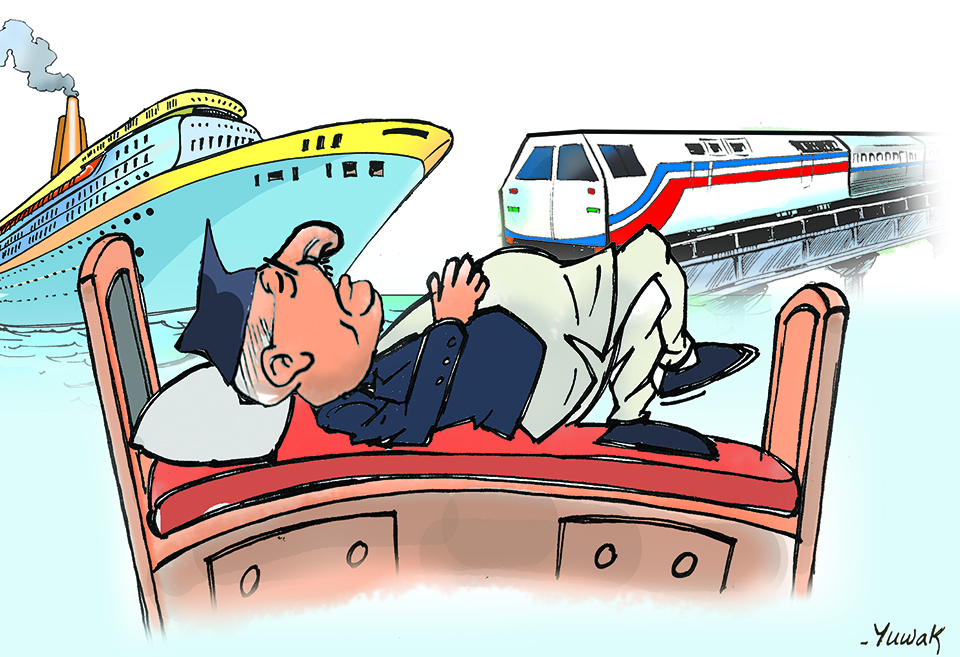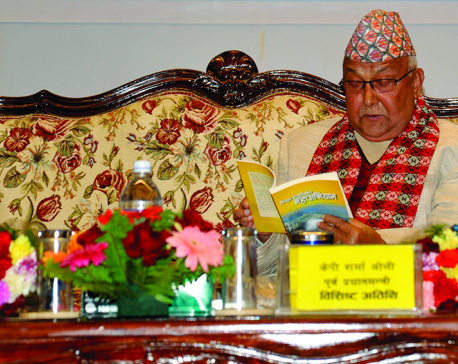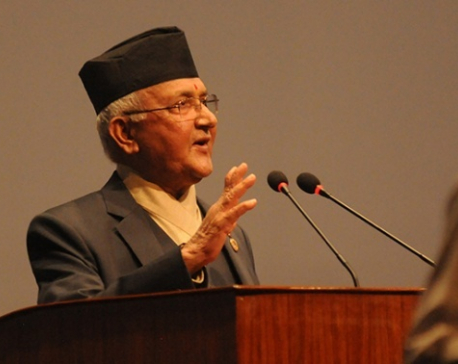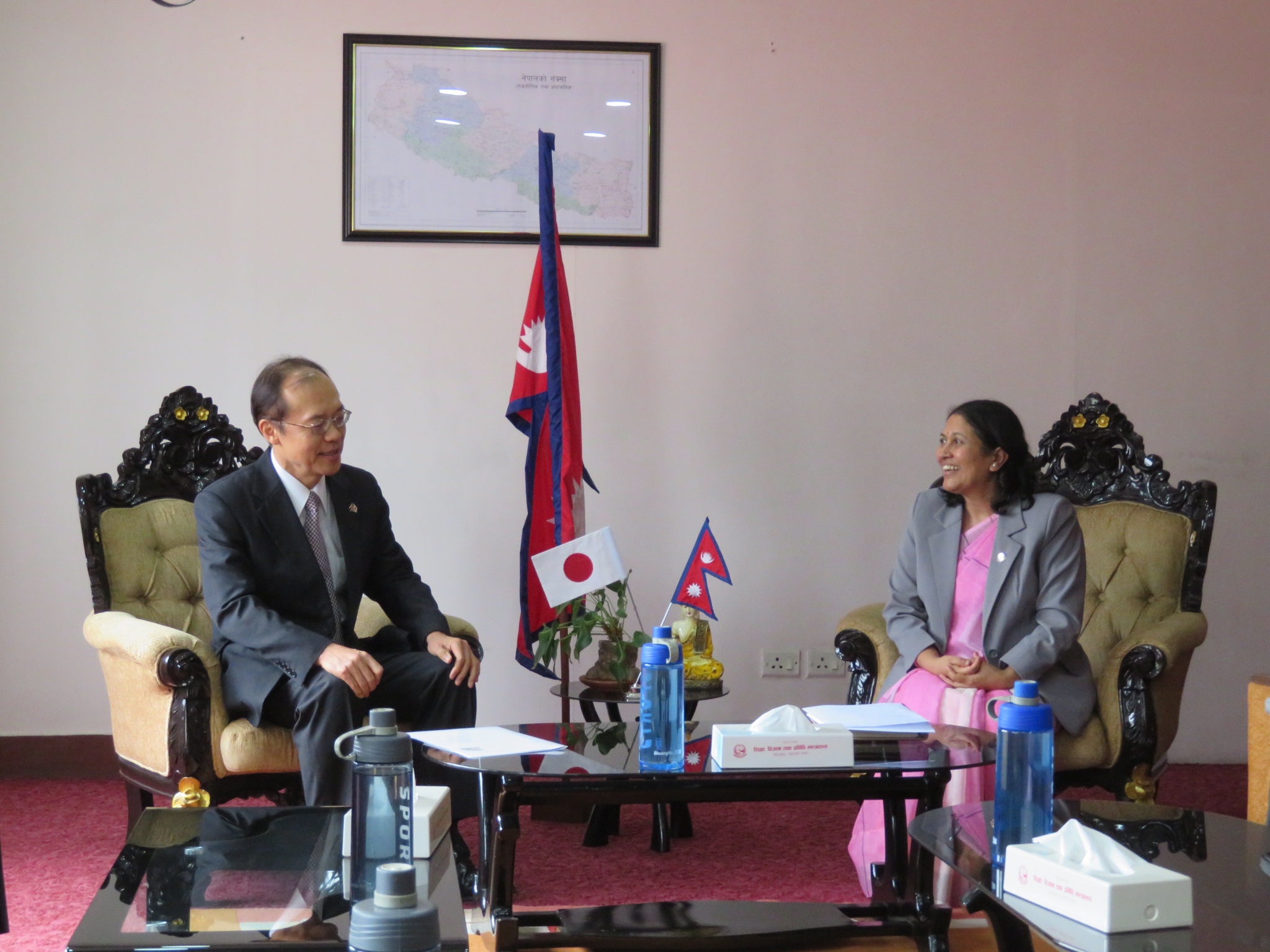
OR
When the government fails
Published On: September 6, 2018 01:30 AM NPT By: Mahabir Paudyal | @mahabirpaudyal


Mahabir Paudyal
Mahabir Paudyal is an opinion writer at Republica with interest on history, domestic politics and international relations.mahabirpaudyal@gmail.com
More from Author
- Nepal is falling into a trap of India, China and the US
- Prime Minister Oli is pushing the country to precipice. Is there a way to stop him?
- How can you be so irresponsible about education?
- What is Nepali Congress thinking about China?
- Fellow Nepalis, fear the government, fear as much for the country
Oli has failed to deliver on governance front. He seems weak despite being powerful and helpless despite having two-thirds majority support in the parliament
When leaders of the opposition party, whom people despised for not delivering while in power, whose promises sounded hollow and who were seen as incompetent actors start sounding like speaking in favor of people. When the party then in opposition (now in government), whom you admired and reposed hope and trust, starts looking feeble, incompetent and hollow.
When the people who once celebrated and defended the government start talking ill of government ministers. It is then that those in the government should know they are failing, or that they are widely being perceived as failing to govern.
Gradually, all infamies of government of Sher Bahadur Deuba—he presided over the largest cabinet in history, he was intolerant to criticism, he was accused of trading off ambassador posts, his government had doled out from state coffers as much as it could, the list runs long—are paling in comparison to inaction and misguided steps of the current government.
We do not have the practice of measuring popularity rating but if we had, I wager, the result would show Prime Minister K P Sharma Oli’s popularity falling and opposition leader Sher Bahadur Deuba’s rising.
Six months out of power, Deuba’s terms of misrule and bad governance are fading in public memories. At least the stock market had not fallen (though it’s recovering now) so low when he was in power, at least he had not prohibited protest at Maitighar Mandala, at least his government had not raised local taxes, goes the thinking among many.
When Deuba spoke up demanding justice for rape victim of Kanchanpur (he was reported as saying ‘the police takes no action, the government does not listen, where will commoners go for justice?’) he sounded more caring toward commoners than his successor in power.
Cost of inaction
When the government fails on basic duties, it will have to bear with all insults, all allegations, fair and unfair and real and fabricated. This is what is happening with Oli’s government.
He is being questioned for his inability to manage federalism, which is unfair. It is stupid to think someone other from among current top leaders would be able to manage federalism better than Oli. He is being accused of curbing freedom of NGOs, curtailing civil liberties and press freedom.
Truth is government’s decisions on above mentioned issues have either been ineffective or are far from being implemented. Much ‘feared’ National Integrity Policy to regulate NGOs and INGOs is unlikely to be finalized without alterations. With warning from media fraternity, the government has already assured to amend anti-press clauses in new laws.
He is derided for anomalies in taxation by local governments (including those led by Nepali Congress). He is being held responsible for failing to fill potholes in the streets. Lest readers have forgotten, when he was prime minister in July 2017, after a child fell into a sewerage drain and lost life in Kathmandu, Sher Bahadur Deuba had directed government authorities to fix water-logging on the streets within 15 days but to no avail.
We inherit the potholes and pollution from the time of Deuba, who inherited them from his predecessors, who inherited them from their predecessors. Account of inheritance of misrule and bad governance runs long.
But since the government is failing to fix the most basic things, even the agenda of far-reaching consequences like connectivity and trade with and in addition to India sounds like a joke. Proposed railway link with China and India and water link with India have become the subject of public ridicule.
How else will people judge the government when it takes more than a month to heed the demands for medical education reforms, when it fails to nab rapists even after nationwide outrage, when it stands too weak and helpless against the most notorious contractor (read Pappu construction) and when it rewards the tainted and controversial characters with national medals?
Stigma of authoritarianism
Our governance system has fallen so low that we don’t judge the government based on what policies, if at all, it has for the next five or ten years for generating jobs and enhancing economy. Even fulfilling the most basic jobs like filling up potholes and nabbing few criminals make the government successful in public eyes. Yet, this is where our governments fail all the time.
Like his predecessors, Oli has failed to deliver on governance front. He seems weak despite being powerful and helpless despite having two-thirds majority support in the parliament. But pundits and his detractors see in him nothing but the ghost of authoritarianism. And they invoke some failed decisions of the government to prove their point.
They accuse him of centralizing powers by bringing under his jurisdiction and power National Investigation Department, Social Welfare Council and authorities such as departments of Revenue Investigation and Money Laundering Investigation. In truth, these bodies always remain under PM’s control. As for National Integrity Policy and much-hyped anti-I/NGO and anti-press laws, they are not likely to come into effect.
There is a neat distinction between failure to govern, recklessness and authoritarianism but our commentators still project him as the rising despot of South Asia.
One reason why there is such hue and cry against the government and why the government is becoming arrogant is that in the last 30 years, we have never experienced how it is to be ruled by the government that serves the full terms. We have been used to with the governments that last for less than a year.
Now that we have the one that is expected (at least until now) to stand for five years, there is panic everywhere. The government ministers, not all, have taken this as an opportunity to make money. Opposition leaders seem to be guided by the fear that in five years the ruling party will have drained the resources in such way that there will be nothing left when they return to power.
Oli has failed on authoritarian mission, if it all he was in such mission, but bad thing is he is failing on governance as well.
Ways for rescue
If Oli’s actions had resulted in one or two outcomes, no matter how small, that resulted in visible change in people’s day to day life, if he had , say, been bold enough to sack the nonperforming ministers from his cabinet, his weaknesses on other fronts would have been pardoned.
This is why he has got to show something immediately and urgently. Those close to the Prime Minister argue that he is not as reckless and uncaring toward people as projected in the media. They say he keeps updated with what the people are saying and how he is being perceived, and he is worried. If it were so.
In Nepal becoming a minister or a prime minister mostly means being surrounded by cronies and cadres all the time. The fawning supporters, whose main goal is to land the contracts or get someone promoted or released from jail, speak nothing critical of the government and instead keep misinforming the government.
It would do well for the Prime Minister to set aside at least two hours a day to read and reflect on what’s happening outside and what the people are saying about him and his government. Go ahead with business as usual and the leader once greatly praised faces the risks of being called the most incompetent prime minister and compared with world’s notorious despots. In lack of actions to prove competence, this narrative will be believed in, when repeated multiple times.
Prime Minister Oli, admit or not, only tool that can rescue your administration and repair your reputation is good governance.
mahabirpaudyal@gmail.com
You May Like This

The year of the Yeti
For a few days, yours truly had been searching for the topic to write something or anything about. You see... Read More...

Heed the warning
Prime Minister’s arrogance and one-upmanship has resulted in his government not getting credit even for some of the good things... Read More...

PM to address parliament on Sunday
KATHMANDU, Jan 3: Prime Minister KP Sharma Oli is scheduled to address the third session of the parliament on Sunday. Read More...











Just In
- Nepal at high risk of Chandipura virus
- Japanese envoy calls on Minister Bhattarai, discusses further enhancing exchange through education between Japan and Nepal
- Heavy rainfall likely in Bagmati and Sudurpaschim provinces
- Bangladesh protest leaders taken from hospital by police
- Challenges Confronting the New Coalition
- NRB introduces cautiously flexible measures to address ongoing slowdown in various economic sectors
- Forced Covid-19 cremations: is it too late for redemption?
- NRB to provide collateral-free loans to foreign employment seekers







Leave A Comment